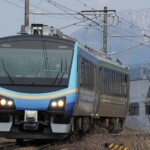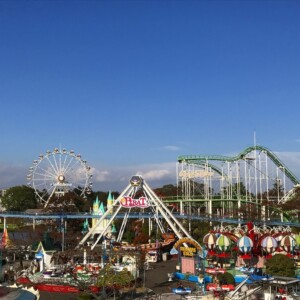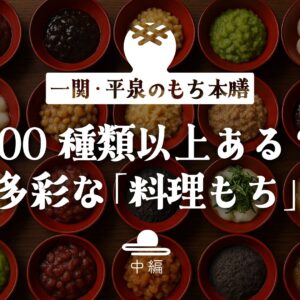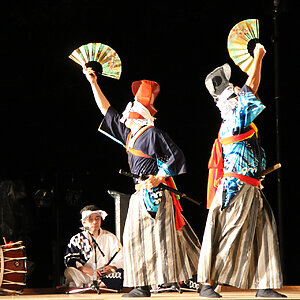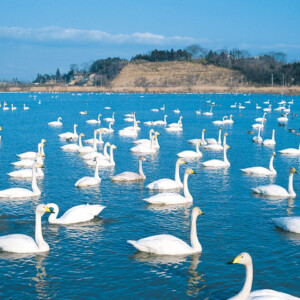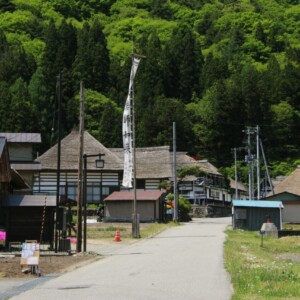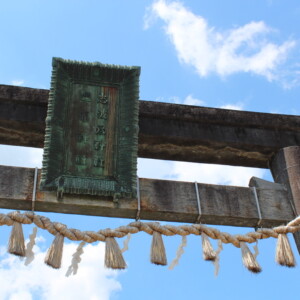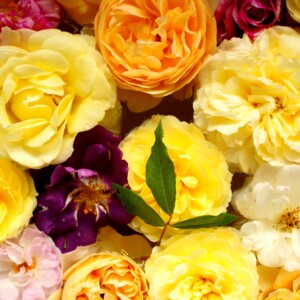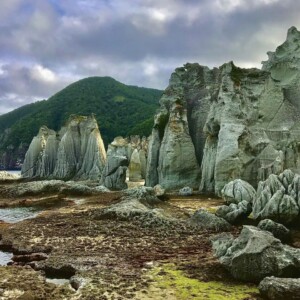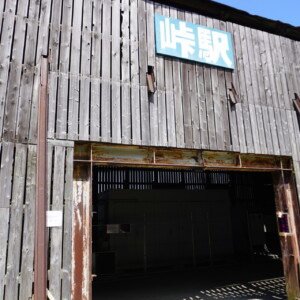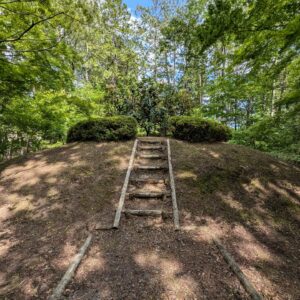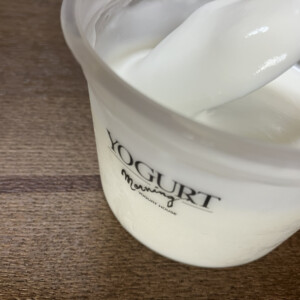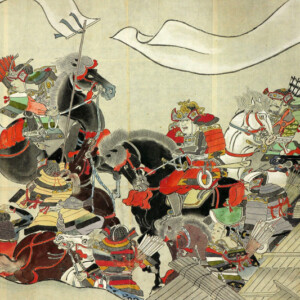
A Christian and one of the "Seven Philosophers of Rikyu" | The Grave of the Multifaceted Gamo Ujisato [Aizuwakamatsu City, Fukushima Prefecture]
table of contents
Zuiunzan Kotokuji Temple, located in Sakaemachi, Aizuwakamatsu City, Fukushima Prefecture, is an ancient temple belonging to the Myoshinji school of the Rinzai sect of Buddhism. Within the temple grounds remains a stupa believed to be the tomb of Gamo Ujisato, a Sengoku
It is the only ruin related to Gamo Ujisato remaining in Aizuwakamatsu City, and is a valuable historical heritage site
Gamo Ujisato was born in Omi and became a feudal lord of Aizu with 920,000 koku of rice
Gamo Ujisato was born in Hino, Gamo County, Omi Province as the third son of Gamo Masahide. His talent was discovered by Oda Nobunaga from an early age, and he married Nobunaga's second daughter, Fuyuhime

After Nobunaga's death, he served Toyotomi Hideyoshi, and in 1590, during the Oshu Shioki, he was transferred from Ise Province to the Aizu domain with a fief of 420,000 koku
Kurokawa Castle was renamed Wakamatsu Castle, and later rebuilt into a castle with a seven-story tower and "Tsuruga Castle ." At the same time, the town name was also changed from "Kurokawa" to "Wakamatsu," and the prototype of the current Aizu-Wakamatsu city was established.
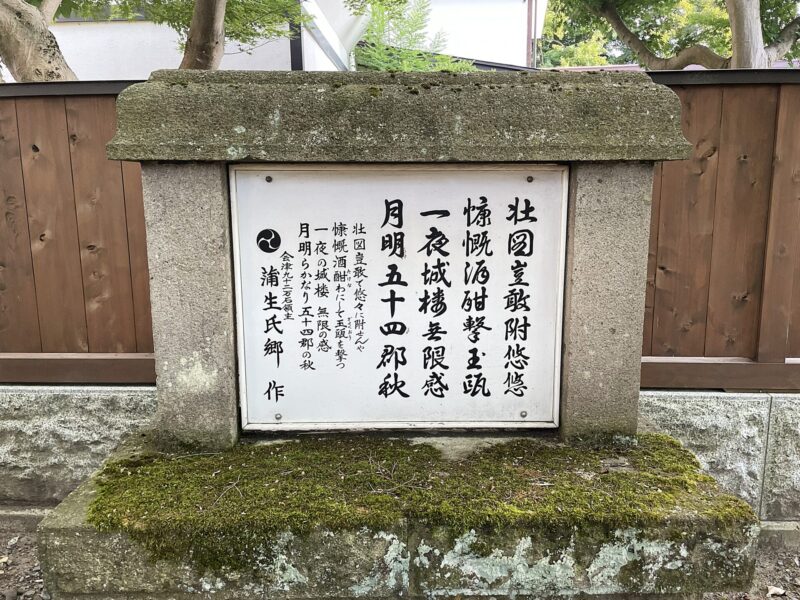
In addition to his talent as a military commander, Ujisato was also deeply versed in the tea ceremony, studying under the tea master Sen no Rikyu and the "Seven Philosophers of Rikyu." "Christian daimyo" who was baptized into Christianity , and his baptismal name was "Leon."
It appears that he was a great man who excelled in both the arts and martial arts, and who also had the tolerance to accept new things
After his death, he was cremated in Kyoto, and his hair was sent to Aizu
On February 7, 1595 (4th year of Bunroku), Ujisato died of illness at the Gamo residence in Fushimi, Kyoto, and was buried at Daitokuji Temple in Kyoto
The oldest medical record in Japan, the Medical Tenshoki, left by Manase Gensaku, records that he continued to fight the disease for three years from 1593 (the second year of Bunroku) until his death in 1595 (the fourth year of Bunroku), and that he suffered from symptoms such as ascites and edema in his face, hands and feet, so it is speculated that he had what is now known as rectal cancer

Later, in Aizu, Ujisato's eldest son, Gamo Hideyuki, who became the second feudal lord, a grave containing his hair and bones erected at Kotokuji Temple. This is the current gravesite of Gamo Ujisato.
The current grave of Gamo Ujisato

Kotokuji Temple is a branch temple of Myoshinji Temple in Kyoto and is a Rinzai sect temple
This ancient temple was founded in this area by Zen master Daien in 1287 (the 10th year of the Koan era). During the rule of Aizu by Date Masamune, many monks, including the then chief priest Shinan, were exiled (taking refuge at Katsukata-ji Temple in Katsukata Village, Aizu County), and the Date army set up a temporary camp here
It was also used as the throne room (a place of work and living for emperors, shoguns, and other nobles) during Toyotomi Hideyoshi's Oshu Punishment, which the "Ten Great Temples of Japan" .
When Gamo Ujisato was appointed to Aizu, he welcomed Shinan, the head priest of Kotoku-ji Temple, who had been exiled by Date Masamune, back to his position as head priest, and gave the temple a stipend of 200 koku. This was inherited by generations of the Gamo family, and it is said that they later donated an additional 200 koku
Source: New Edition Aizu Fudoki, Volume 13, Wakamatsu No. 2, Mutsu Province

The temple was burned down during the Boshin War, but was rebuilt in 1964 (Showa 39) using reinforced concrete
Death poem monument
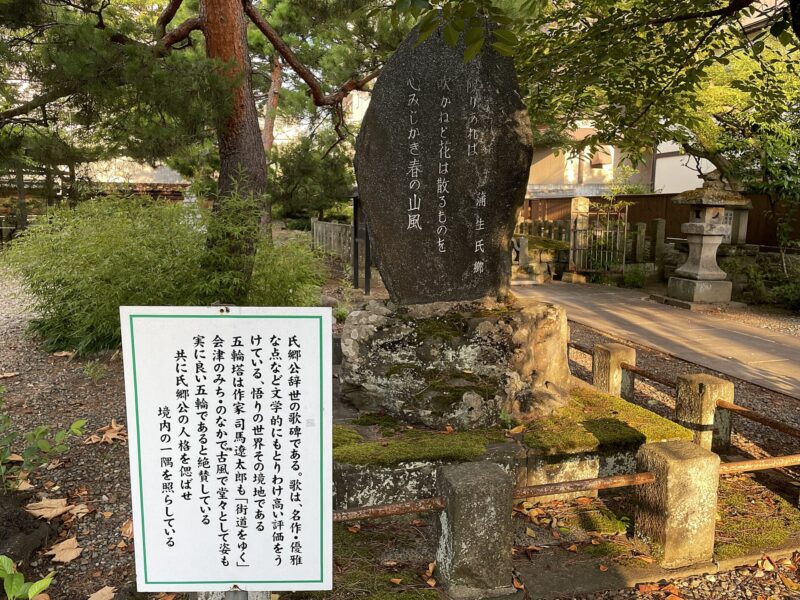
stands a stone monument erected by the Aizu Historical Society in 1953
If there is a limit, the flowers will fall even if the wind blows, but the spring mountain breeze is short-lived
Five-ringed tower

The gravestone located on the north side of the main hall of Kotokuji Temple is a five-ringed tower engraved with the five characters "sky, wind, fire, water, and earth." It is said to contain the remains of Gamo Ujisato's hair
The "Gamo Ujisato Mausoleum Building Plaque" with the date July 12, 1596 (5th year of Bunroku) is inscribed on it
"Ujisato's legitimate son, Gamo Hideyuki, built a mausoleum for Ujisato's memorial service and enshrined the Muho Tower inside."
This suggests that at some point in time, the Muho Pagoda was rebuilt into a Gorin Pagoda, but the details are unknown. It has been designated a tangible cultural property of Aizuwakamatsu City
Gamo Ujisato Graveyard <Information>
- Name: Gamo Ujisato Memorial Park (Koutokuji Temple grounds)
- Address: 3-13 Sakaemachi, Aizuwakamatsu City, Fukushima Prefecture, 965-0871
- Phone number: 0242-39-1275 (Aizuwakamatsu City Hall Urban Development Division)
- Official URL: Aizuwakamatsu City Official Website – Gamo Ujisato Memorial Park


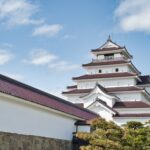


![[Fukushima] Along with sightseeing at Tsuruga Castle, the Aizu Ramen Show is finally here! 1e2675187f4dad35bc59e28f4a767e23_m](https://jp.neft.asia/wp-content/uploads/2017/10/1e2675187f4dad35bc59e28f4a767e23_m-150x150.png)
![[Aizuwakamatsu City, Fukushima Prefecture] Relax in the warmth of Japanese culture and heartwarming hospitality at Mukaitaki, a cultural heritage inn 0d2c7a93530a3aaff6e906a495e42d14](https://jp.neft.asia/wp-content/uploads/2022/09/0d2c7a93530a3aaff6e906a495e42d14-150x150.jpg)
![[Aizuwakamatsu City, Fukushima Prefecture] "Aizu Thirty-Three Kannon Temples" Tour around the Kitaaizu Area, Centered on Aizuwakamatsu 25949683_m](https://jp.neft.asia/wp-content/uploads/2023/02/25949683_m-150x150.jpg)
![[Aizuwakamatsu City, Fukushima Prefecture] Aizu's largest festival! Information on Aizu Festival 2023 634-1569](https://jp.neft.asia/wp-content/uploads/2023/08/634-1569-1-150x150.jpg)
